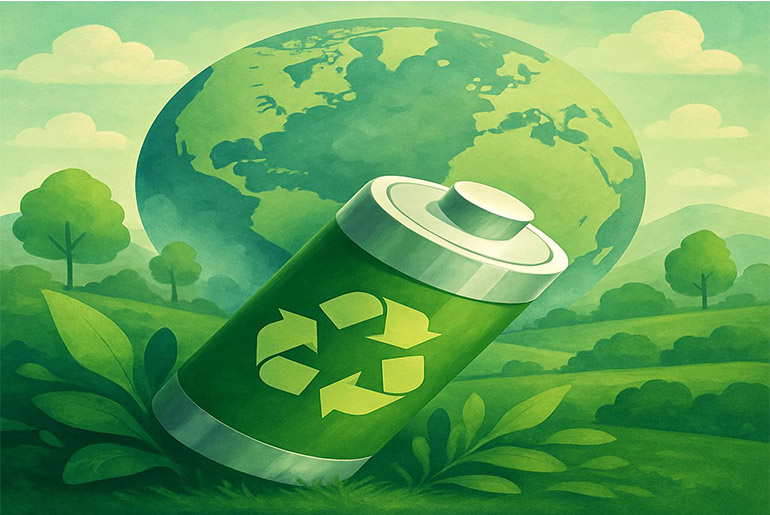On World Environment Day, the spotlight is not only on reducing emissions but also on rethinking the way we manufacture the technologies that power a greener tomorrow. The battery industry, which plays a pivotal role in decarbonizing transport and energy sectors, is undergoing a sustainable transformation. As demand for electric vehicles and renewable energy storage systems soars, the need for cleaner, safer, and more energy-efficient battery manufacturing practices has never been more urgent.
In this evolving landscape, Bry-Air stands out as a sustainability frontrunner. With its advanced dehumidification systems and green manufacturing technologies, the company is driving real change—minimizing the environmental impact of battery production while maximizing performance and efficiency.
How the Battery Industry is Contributing to a Cleaner Planet:
From energy-efficient dry rooms to toxic gas recovery systems, battery manufacturers are innovating across the value chain to align with global climate goals. The shift to solid-state lithium-ion batteries marks a major leap in this direction. These batteries are not only safer and more efficient than their predecessors, but they also demand precise environmental control during production—a challenge that’s being tackled through technological ingenuity.
Many battery companies are now incorporating circular economy principles, reducing waste, and enhancing energy recovery systems. Dehumidifiers, VOC capture, energy recycling, and AI-powered manufacturing analytics are all part of the toolkit helping the industry reduce its carbon and environmental footprint.
Industry Perspective:
Solid-state lithium-ion batteries are often hailed as the holy grail of battery innovation, offering superior energy density, thermal stability, and a longer lifespan. However, their manufacturing requires ultra-low humidity environments to maintain material integrity and safety standards. That’s where innovations like Super Low Dew Point (LDP) dehumidifiers and NMP Recovery Systems play a vital role.
Energy consumption in Dry Rooms accounts for nearly 43% of total energy usage in battery plants—a figure that can be drastically improved with Bry-Air’s solutions. Moreover, VOC emissions from solvents like N-Methyl-2-Pyrrolidone (NMP) pose significant environmental and occupational risks. Bry-Air’s systems mitigate these impacts by enabling on-site recovery and reuse, reinforcing sustainable manufacturing standards.
Expert Insight—Deepak Pahwa, Chairman, Pahwa Group & Managing Director, Bry-Air:
“Bry-Air is a trailblazer in energy efficiency and sustainable solutions that is committed to driving a greener and cleaner environment with the help of advanced technologies. Contributing to the purpose, our innovations boost the manufacturing of solid-state Li-ion batteries, which is the next frontier in shaping the EV industry.
To fuel the production of high-quality batteries, we provide dry rooms, which are a prerequisite for achieving ideal environmental conditions during battery manufacturing. At the same time, for driving optimal performance of the Dry Rooms, we also offer energy-efficient Super Low Dew Point (LDP) dehumidifiers that are plugged into the room. Considering that Dry Rooms consume 43% of the total energy in battery manufacturing, the energy-saving dehumidifiers significantly reduce the energy costs during the manufacturing process.
The Super Low Dew Point (LDP) dehumidifiers are well-equipped with high-performance rotors that maximize the efficiency of Dry Rooms while achieving ideal manufacturing conditions. It is adept at maintaining a dew point of -80°C while supplying air of < -70°C Dew Point that goes a long way in driving stability and optimal performance of solid-state Li-ion batteries.
At the same time, we also provide NMP Recovery System for solid-state Li-ion battery manufacturing to enable the capture and recycling of N-Methyl-2-Pyrrolidone (NMP), which is an essential raw material required at the time of manufacturing. It is responsible for adding to the air pollution, thereby contributing to environmental deterioration. Here, the NMP Recovery System supports environmental stewardship by eliminating the emission of toxic gases at the time of solid-state battery manufacturing. Facilitating recovery and reuse of NMP, it captures the pollutants at the source, promoting improvement in air quality for a cleaner and safer work environment, and also ensures the reduction of material waste in the process.”



